Verification Using SystemC Part XII
Sunday, 21 November 2021 20:43
Semicon Editor 01
 Data Structures
The SystemC Verification Standard contains several generic data structures. One of the main data types is sparse_array, this is used for modelling memories at very high of abstraction.
Last Updated ( Tuesday, 29 March 2022 00:42 )
Read more...
|
Verification Using SystemC Part XI
Sunday, 21 November 2021 20:39
Semicon Editor 01
 Transcation Recording
Simulation activity in a testbench is best recorded at the transaction level. Transaction recording is the act of recording timing information and attribute information associated with transactions into the database. This information can be used to visualize simulation activities, debug, perform coverage analysis, and do other tasks.
Last Updated ( Tuesday, 29 March 2022 00:42 )
Read more...
Verification Using SystemC Part X
Friday, 19 November 2021 13:25
Semicon Editor 01
 Seed Management
SCV provides support for Global Seed Setting and Unique seed setting for each thread. When no seed setting is done, then default seed 1 is assume
Last Updated ( Tuesday, 29 March 2022 00:43 )
Read more...
Verification Using SystemC Part IX
Friday, 19 November 2021 13:19
Semicon Editor 01
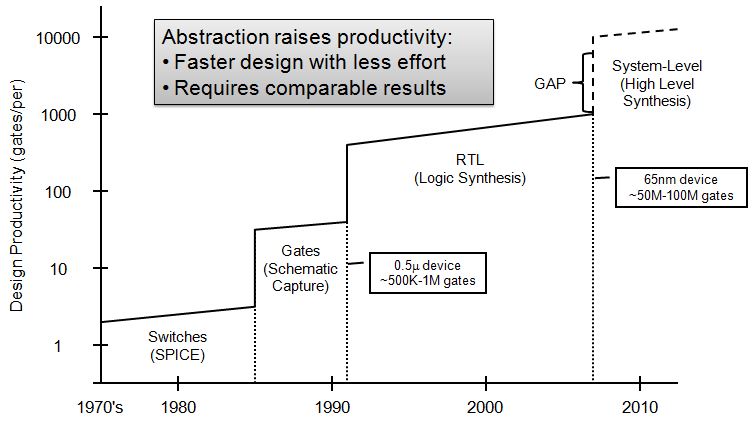 Example : keep_only 1 #include 2
Last Updated ( Tuesday, 29 March 2022 00:43 )
Read more...
Verification Using SystemC Part VIII
Friday, 19 November 2021 12:38
Semicon Editor 01
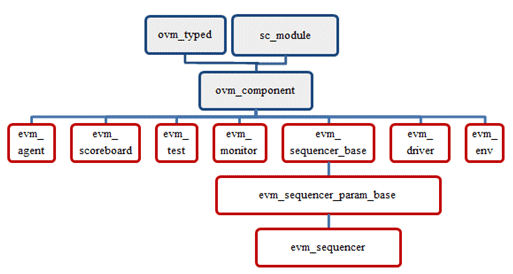 Weighted Randomization
While a constraint specifies the range of legal values, a weight specification biases the random value generation process so that some values are generated more often than others.
Last Updated ( Tuesday, 29 March 2022 00:43 )
Read more...
Verification Using SystemC Part VII
Tuesday, 16 November 2021 19:47
Semicon Editor 01
 Constraints
In last page we saw how to generate radom values. This random values if total random does not do much good in verification. To control the value range that a variable takes we constrain it.
Last Updated ( Tuesday, 29 March 2022 00:43 )
Read more...
Verification Using SystemC Part VI
Tuesday, 16 November 2021 19:44
Semicon Editor 01
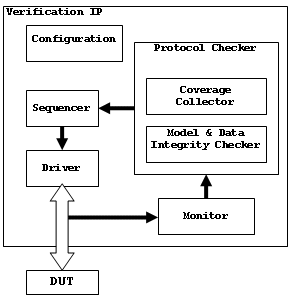 Randomization SCV provided very powerfull mechanism for doing randomization. Using the data introspection facility discussed previously, constrained randomization can be performed on arbitrary data types.
Last Updated ( Tuesday, 29 March 2022 00:43 )
Read more...
Verification Using SystemC Part V
Tuesday, 16 November 2021 19:40
Semicon Editor 01
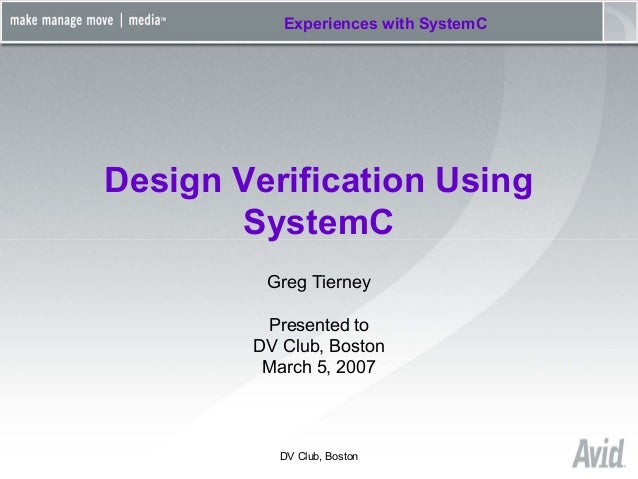 Dynamic Extension A dynamic extension is used when auxiliary data needs to be associated with the data object, such as a constraint or a callback function pointer. This is accomplished via the scv_smart_ptr template in the Verification Standard.
Last Updated ( Tuesday, 29 March 2022 00:43 )
Read more...
Verification Using SystemC Part IV
Sunday, 14 November 2021 20:22
Semicon Editor 01
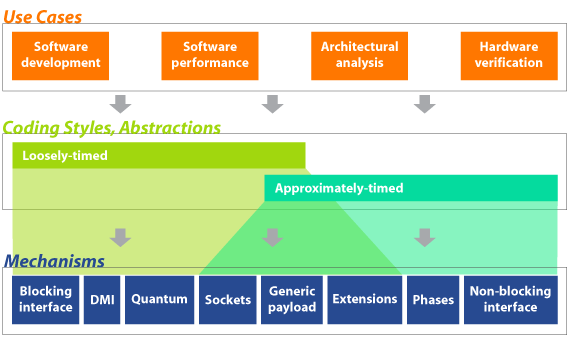 Example : scv_user_defined class 1 #include 2
Last Updated ( Tuesday, 29 March 2022 00:43 )
Read more...
Verification Using SystemC Part III
Sunday, 14 November 2021 20:14
Semicon Editor 01
 Extensions for User-Specified Types
In order to support user-specified composite types, the user needs to provide a partial template specialization of scv_extensions for the specific composite type in the test bench.
Last Updated ( Tuesday, 29 March 2022 00:44 )
Read more...
Verification Using SystemC Part II
Sunday, 14 November 2021 20:10
Semicon Editor 01
 Using the scv_extensions_if
The abstract methods provided by scv_extensions_if can be classified into methods for static extensions and methods for dynamic extensions.
Last Updated ( Tuesday, 29 March 2022 00:44 )
Read more...
Verification Using SystemC
Sunday, 07 November 2021 16:40
Semicon Editor 01
 Introduction ystemC provides very basic verification support. This support is same what Verilog 1995 provided. The SCV or SystemC Verification standard, provides APIs for transaction-based verification,
Last Updated ( Tuesday, 29 March 2022 00:44 )
Read more...
SystemC DataTypes Part V
Sunday, 07 November 2021 16:32
Semicon Editor 01
 sc_uint sc_uint is unsigned integer, and it is fixed precision integer of size 64 bits. The underlying operations use 64 bits, but the result size is determined at object declaration.
Last Updated ( Tuesday, 29 March 2022 00:45 )
Read more...
SystemC DataTypes Part IV
Sunday, 07 November 2021 16:30
Semicon Editor 01
 sc_int sc_int is signed integer, and it is fixed precision integer of size 64 bits. The underlying operations use 64 bits, but the result size is determined at object declaration.
Last Updated ( Tuesday, 29 March 2022 00:45 )
Read more...
SystemC DataTypes Part III
Saturday, 06 November 2021 21:18
Semicon Editor 01
 Arbitrary Width Bit Type
sc_bit is one bit wide, SystemC provides sc_bv or SystemC Bit Vector for multi bit vector declaration. The width of the vector is specified in integer . The rightmost index of the vector is 0 and is also the least significant bit.
Last Updated ( Tuesday, 29 March 2022 00:45 )
Read more...
SystemC DataTypes Part II
Saturday, 06 November 2021 21:02
Semicon Editor 01
 Bit Type sc_bit is the bit type data type, which can take two values '0' and '1'. Where 1 represents true and 0 represents false.
Last Updated ( Tuesday, 29 March 2022 00:44 )
Read more...
|
|
|
|
|
|
|
Page 8 of 118 |


